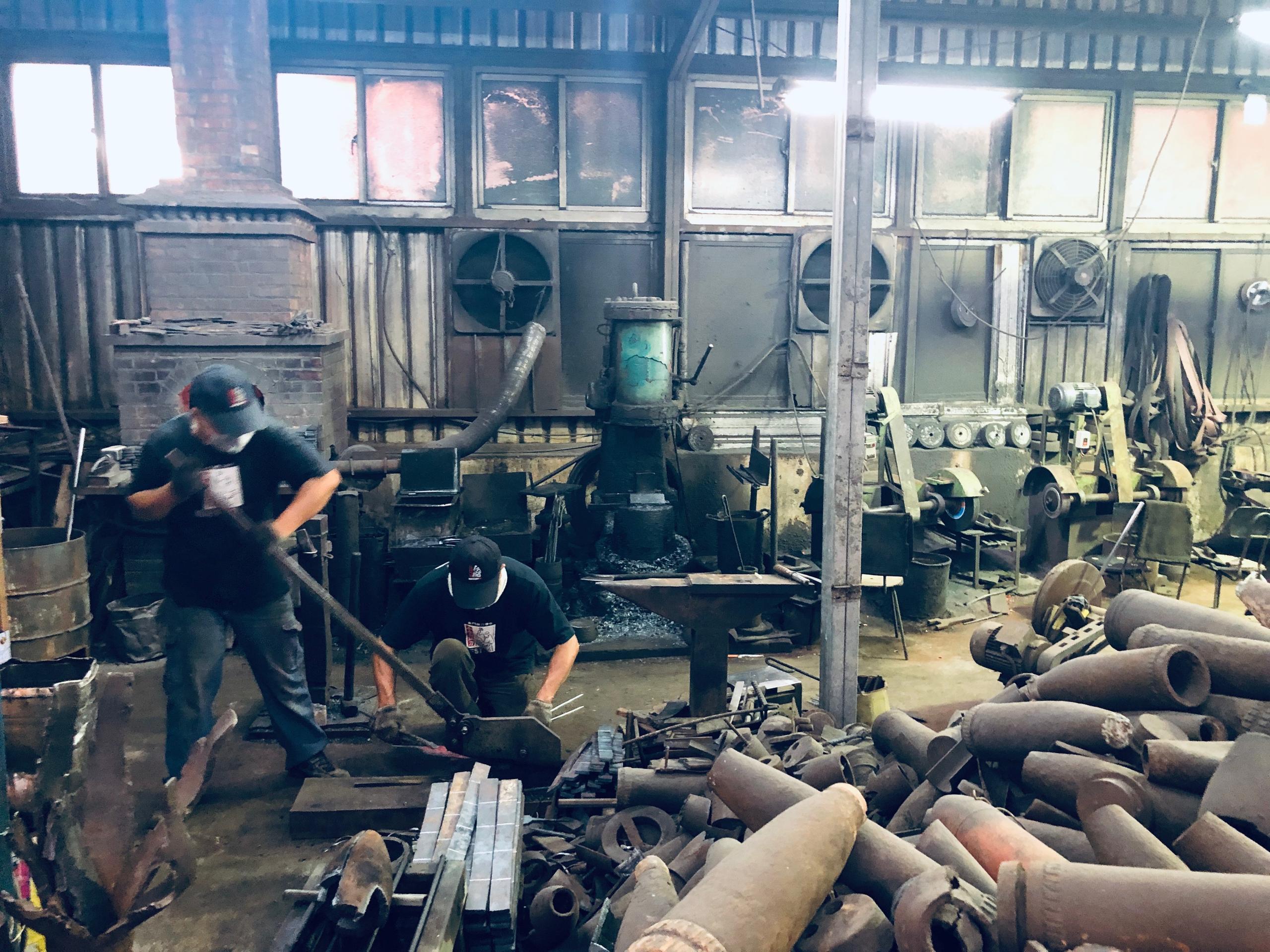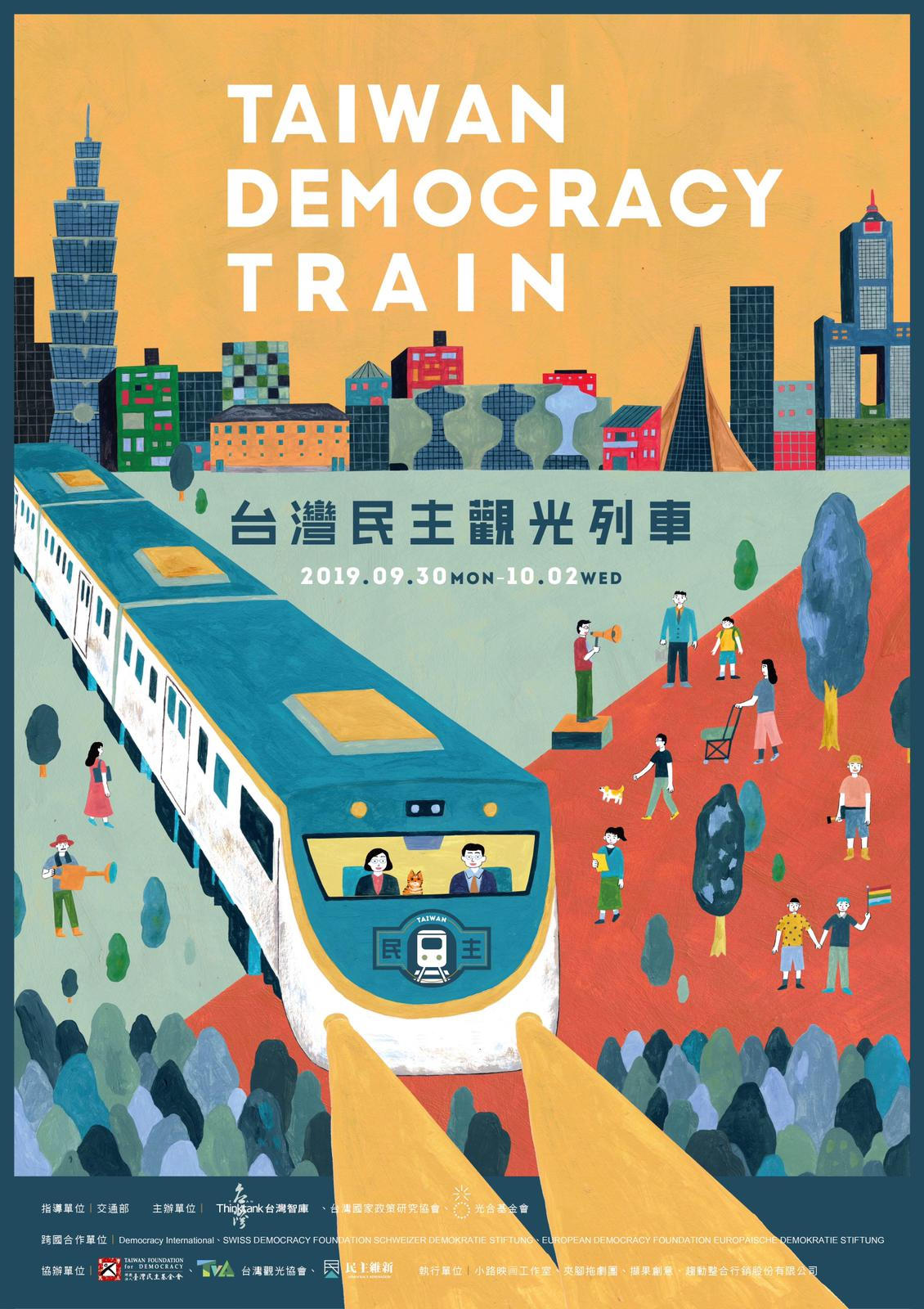
Little-known hot spot of world democracy on China’s doorstep

Public attention focuses on the former British colony Hong Kong, struggling for its limited constitutional freedoms, but a vibrant participatory democracy has grown outside the Chinese shores. Taiwan is a place that offers the world fascinating insights.
“Last night there was another guy from the other side swimming over the bay,” says Ko Cheng-fang. “We sent him back home,” she adds.
The “other side” in this case is China, the world’s most populous country which celebrates its 70th anniversary as a Communist one-party state next Tuesday.
This text is part of SWI swissinfo.ch’s coverage of this year’s Global Forum on Modern Direct DemocracyExternal link which opens in Taiwan on October 2. swissinfo.ch supports the event and will report on it in several languages.
Ko Cheng-fang is a young female politician who represents the island of Kinmen (area 153 km2, pop. 130,000) in the national Taiwanese parliament in Taipei.
The beaches of Kinmen island and the Chinese provincial capital, Xiamen, are just a few hundred metres from each other, a strikingly close distance compared with the 200 kilometres which separate the shores of mainland China and the coastline of mainland Taiwan.
Not only night swimming refugees are trying their luck across the small bay. In the daytime, thousands of Chinese tourists are shipped to Kinmen by ferries for shopping and – unintentionally – to breathe a little bit of democratic fresh air.
The Kinmen archipelago just off the Fuijan shores is part of the small full-fledged democratic country, Taiwan, and does not belong to the increasingly autocratic regime in Beijing.
Coffee with Mao and Chiang Kai-shek
The picturesque alleys of Jinning Township, Kinmen’s capital, give nothing away about the clashes of the political cultures. Coffee shops display posters with Communist chairman Mao as well as statues of Chinese nationalist dictator Chiang Kai-shek.
At the end of the civil war in 1949, the general and his troops withdrew from continental China to Kinmen and later across the straits to mainland Taiwan. That war, which cost more than five million lives, still has great implications today.
The Taiwanese people have managed to overcome the Chiang Kai-shek dictatorship with the help of democratic movements since the late 1970s. But China’s Red Army continued to bomb Kinmen for decades.
Millions of artillery shells were fired across the bay from Xiamen. Some of them are now piled up outside the workshop of Master Wu in downtown Jinning. He and his team are literally taking the idea of turning swords into ploughshares by forging steel knives from the war debris.

However, Master Wu’s somewhat symbolic craft of Chinese-Taiwanese friendship can’t make one forget Beijing’s attempts to “reclaim” not only Kinmen but the whole of Taiwan.
China also refuses to accept Taiwan’s request for full membership of the United Nations. It is the only sovereign and self-governed country in the world kept outside the world organisation against its own will.
This soaring wound of war history and the diplomatic power game adds to the fact – largely ignored by the general public – that Taiwan is a true democratic success story.
Democratising by democracy
All eyes are currently on Hong Kong, where the population of eight million people is struggling to preserve its far more limited freedoms under the so called ‘One country, two systems’ formula.
But a few hundred kilometres into the West Pacific, a strong and vibrant participatory democracy has been developed in Taiwan over the past 25 years.
The first free election of a president took place in 1996. Since then three peaceful changes of power have taken place. This was the case most recently three years ago, when Ma Ying-jeou from the nationalist KMT was replaced by the first female head of state, Tsai Ing-wen from the Democratic Progressive Party.
But more important than the changeover in executive power are other steps taken to make democracy more citizen-friendly. They include reforms of the judicial system, electoral reforms as well as the development of a system of modern direct democracy over the past 15 years.
A first referendum law adopted in late 2003 provided for the rights of citizens´ initiatives and popular referendums, but too many hurdles and limitations made these democratic instruments almost impossible to use.
“All nationwide referendum votes between 2004 and 2017 were invalidated because of quorum, which rewarded non-participants,” says law professor Su Yen-tu from the Institutum Iurisprudentiae at Academia Sinica in Taipei.
“This law was called the birdcage referendum act,” he adds.
All this changed last year, when the national parliament – energized by the so-called Sunflower democracy movement – approved a new law, which removed the high hurdles dramatically, including lowering the age of voting and introducing a system of electronic signature gathering (for details see factsheet).
+ Factsheet: direct democracy in Taiwan
The Taiwanese citizens were keen to test these new participatory options. Within a few months more than 35 citizens’ initiatives and referendums were filed with the central election commissionExternal link, covering a broad range of policies like same-sex marriage, nuclear energy, statehood issues and democracy reforms.
Ten of these made it to the first round of ballot decisions, which was held on November 24, 2018, alongside local and regional elections across the country.
Learning from mistakes
Combining elections and referendums turned out not to be such a good idea, as voting in Taiwan still means going to a polling station on a particular day. There are no other options such as remote voting.
This is why people often had to wait in long queues outside the polling stations and many citizens were not clear about the various issues at stake.
It did not help either that the phase for public deliberations ahead of the votes was far too short, according to law professor Su.
“The voter information pamphlets produced by the central election commission reached most citizens just a couple of days before polling day,” he says.
Based on these flaws of the electoral system, the Taiwanese parliament decided earlier this year to further revise the law of direct democracy by decoupling elections from referendums and extending the time spans between the submission of signatures and voting days.
Global gathering

Together with hundreds of experts and activists from across the world, Su will take part next week in the 2019 Global Forum on Modern Direct DemocracyExternal link. As a democracy correspondent and supporter, I have co-coordinated this world conference since its establishment back in 2008.
The Taiwan democracy story is a true global story. It holds lessons to learn from a dynamic practice of modern direct democracy in a difficult global context, where the momentum – as the Magazine Foreign AffairsExternal link put it – seems to be with autocracy, not democracy.
Countries such as Taiwan – or other places where the Global Forum has been held including Seoul, San Francisco and San SebastianExternal link – allow us to see other dimensions of political reality.
In such cases the dividing line is not about if there should be modern forms of direct democracy but how these tools should be designed. Next year, the Forum will return to SwitzerlandExternal link: upon the invitation of the mayor of BernExternal link the biggest such gathering will be held in the Swiss capital at the end of September 2020.
Bruno Kaufmann is swissinfo.ch’s global democracy correspondent. He is the director of the Initiative and Referendum Institute Europe External linkand co-president of the Global Forum on Modern Direct Democracy. The views expressed in this article are solely those of the authors, and do not necessarily reflect the views of swissinfo.ch.

In compliance with the JTI standards
More: SWI swissinfo.ch certified by the Journalism Trust Initiative



























You can find an overview of ongoing debates with our journalists here . Please join us!
If you want to start a conversation about a topic raised in this article or want to report factual errors, email us at english@swissinfo.ch.